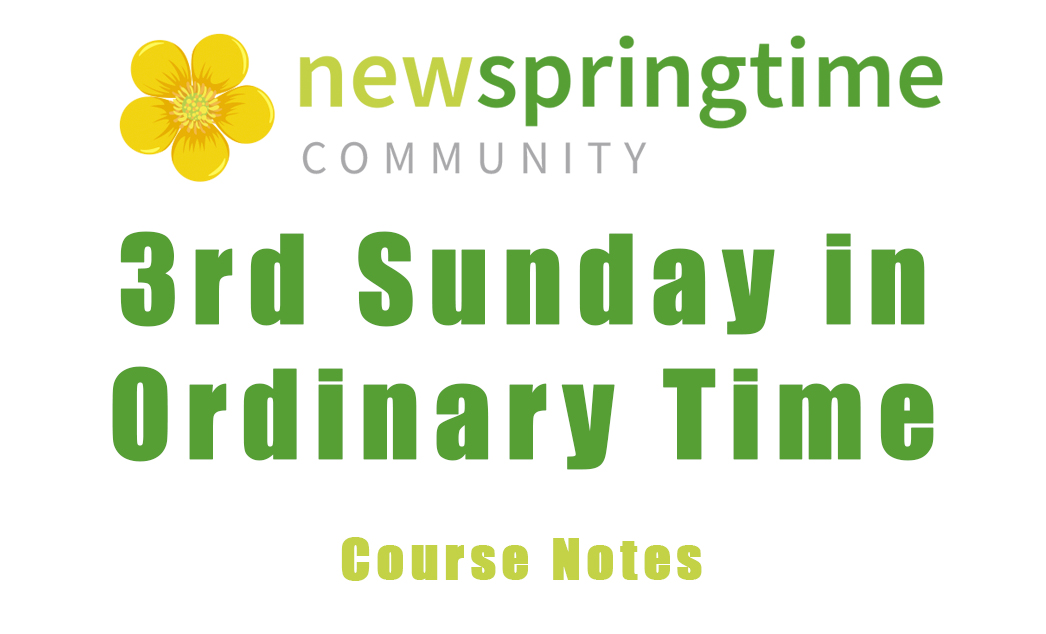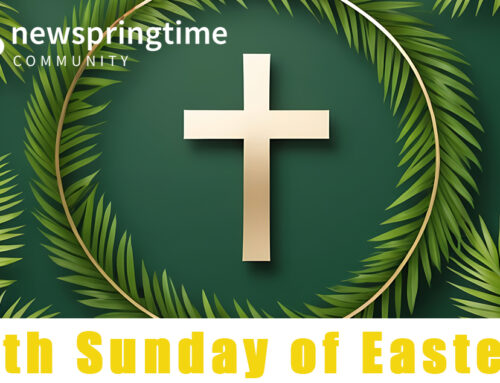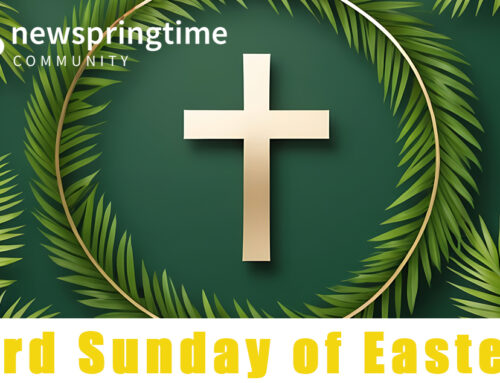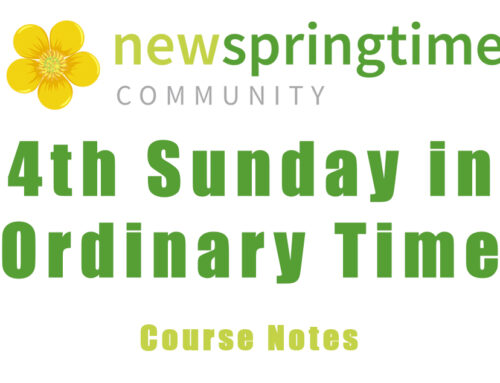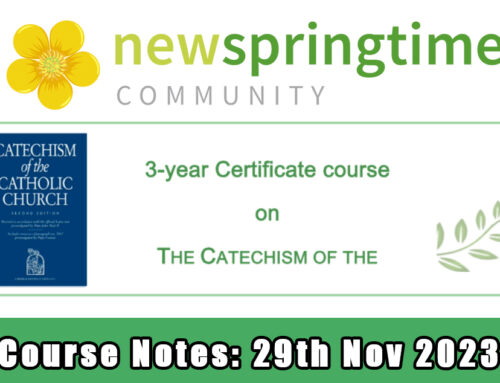Commentary 3rd Sunday in Ordinary Time B
If you would like to download a copy of this notes in PDF, please click here.
“Compassionate God, anoint me with your Holy Spirit, as I read your Word, and let me hear your voice speaking to me within. May your word be the joy of my heart and a lamp for my steps. I desire to build my life on your word. Give me the wisdom to understand what you are saying to me. May I rejoice in the blessedness of hearing your word and keeping it. Speak Lord your servant is listening.”
John the Baptist, the fore-runner had prepared the people for the coming of Jesus. Jesus, the promised one, had been prepared by his Father and the Holy Spirit for his public ministry. Our Gospel recounts two important, foundational events, firstly, the very initial proclamation of the Good news and secondly, the calling of the first apostles. The arrest and subsequent execution of John, intimates that Jesus was evangelising within a hostile context which from the beginning was marked by conflict and would eventually lead to his own arrest the execution.
Mark’s account of the first proclamation is of great interest to all the baptised and confirmed who, like him, are called to evangelise. In the past when I would see people for spiritual direction, I would sometimes ask them to read Mk 1:14-15 and to pray about it. When I saw them for direction, I’d ask them how their Lectio Divina had gone. I was surprised by the number of people who said that they had focused on the word repent. When they recounted how they had reacted, it was evident that they had responded in a rather self-referential and moralistic way, which seemed to be rooted in feelings of performance anxiety and guilt. What they seemed to have overlooked was the joyful proclamation of Jesus, “This is the time of fulfillment. The kingdom of God is at hand.”
What did Jesus mean by these words? All through the OT there had been many prophecies which foretold the coming of the Messiah and God’s decisive and saving intervention in the life of the chosen people and through them in the world. Jesus was saying that chronos, i.e., secular time with all its chronic problems, was being superseded by kairos, i.e., the sacred time when God acts, when heaven touches earth in a saving, transforming way. The announcement that the kingdom of God was at hand was the key proclamation in the evangelisation of Jesus. It referred to the reign of God and God’s divine intervention in human affairs. Speaking about this St Paul said in Rm 14:17, “For God’s Kingdom is not a matter of eating and drinking, but of the righteousness, peace, and joy which the Holy Spirit gives.”
Implicit is the proclamation of the Good News by Jesus was the assurance that the curse of sin was being lifted and the penalty of sin was being removed, not as a result of what people had done, but as a result of the free, unmerited gift of God’s grace. The call to repent has to be understood and responded to in the light of this proclamation. It is a call to change of heart, a change of thinking and behaviour in the light of the wonderful proclamation of Jesus. The danger involved in focusing firstly on the need of repentance it that it can be construed as saying that “if I do so, this good work, it will enable me to
experience the good news.” As scripture says we are not justified by good works, e.g., by repenting, we are called to repent as the expression of having experienced the liberating power of the proclamation of the Kingdom.
The second event in the Gospel reading was the call of a number of men including Peter, who were earning their living by means of fishing in the Sea of Galilee. Apparently, they were able to make a good living for themselves. When Jesus asked them to be his followers, he said that instead of catching fish, from then on they would be fishing for souls, by means of evangelising. What is remarkable is the fact that these canny worldly-wise men were willing to leave the security of their profession and its money-making ability, as well as the comforts of marriage and their home life in order to follow Jesus. Evidently, he had a very attractive, charismatic type of personality. It is interesting to note that Jesus invited two sets of brothers to follow him, i.e., Simon and Andrew, as well as James and John. Unlike regular rabbis, Jesus chose his disciples, not they him. Regular rabbis and their disciples kept up a trade to earn a living and otherwise led a sedentary life of study. Without difficulty , Jesus attracted his disciples to an itinerant life devoid of earnings. It reminds one of what Jesus said on another occasion, do not worry, saying, ‘What shall we eat?’ or ‘What shall we drink?’ or ‘What shall we wear?’ For the pagans
run after all these things, and your heavenly Father knows that you need them. But seek first his kingdom and his righteousness, and all these things will be given to you as well” (Mt 6:31-33). This short Gospel reading is important because it is like the overture to an opera, because it introduces themes that will reappear in greater depth and clarity in the course of the entire Gospel.

